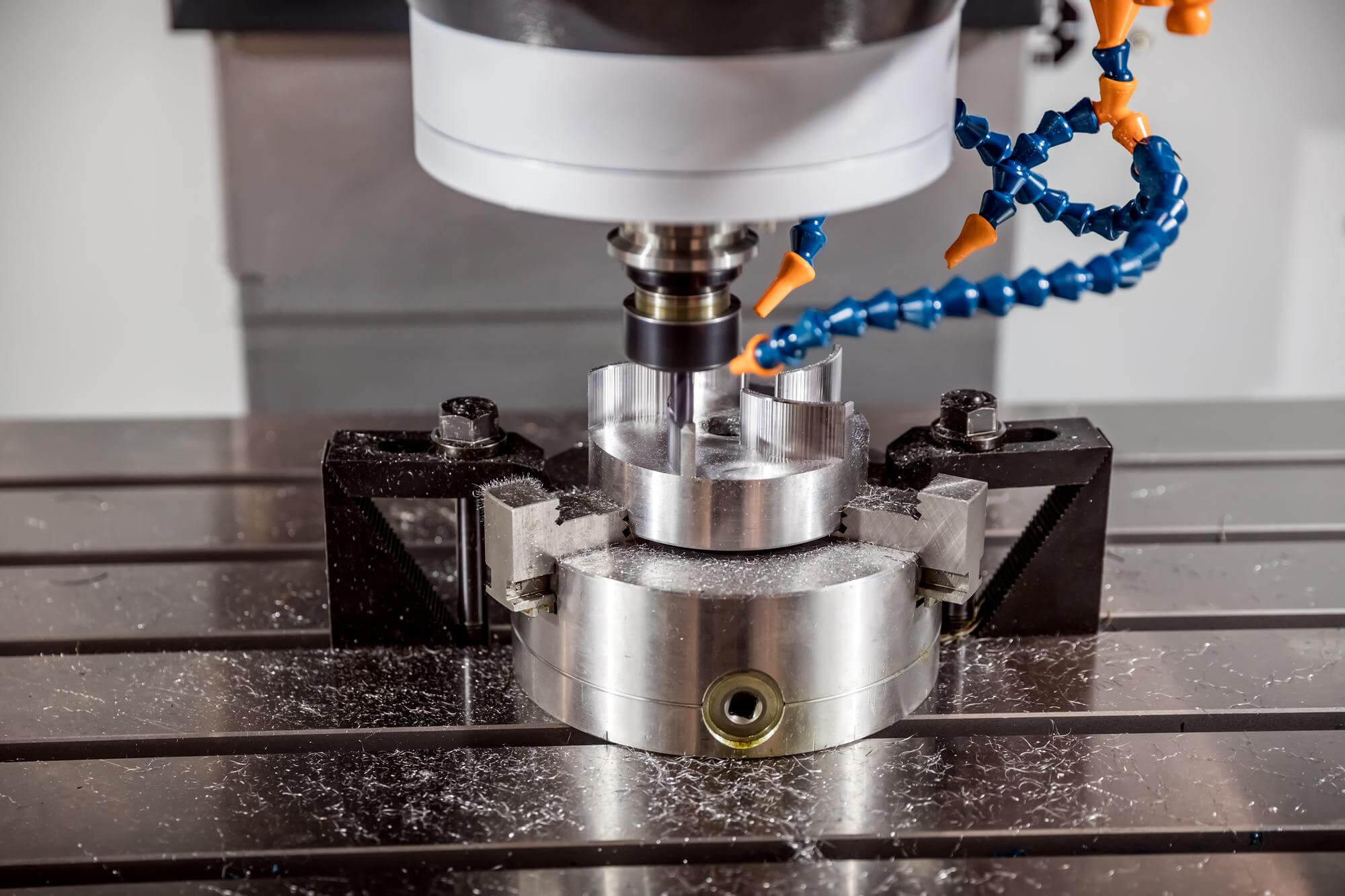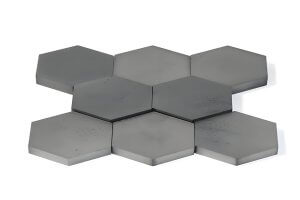In the world of CNC machining, the battle between machine tools and difficult-to-cut materials is nothing short of a high-stakes chess match. For buyers seeking top-quality flanges, understanding this clash is crucial to making informed purchasing decisions, especially when the materials involved demand precision and durability.
Understanding Difficult-to-Cut Materials
When we talk about difficult-to-cut materials, we’re referring to those that pose significant challenges during the machining process. These materials are characterized by high hardness, strength, and toughness, making them resistant to cutting and shaping. They are often used in industries where durability and resistance to wear, heat, and corrosion are paramount.
The common characteristics of difficult-to-cut materials include:
- Hardness: Usually greater than 250 HB (Brinell Hardness).
- Tensile Strength: Typically above 1000 MPa.
- Elongation: Greater than 40%, which indicates high ductility.
- Impact Value: Above 0.981 MJ/m², showing good resistance to impact.
- Thermal Conductivity: Lower than 41 W/(m•K), meaning they retain heat during machining.
Given these properties, materials like titanium alloys, high-temperature superalloys, stainless steels, and composites fall into this category. These materials are chosen for their performance in harsh environments but come with the trade-off of being notoriously challenging to machine.
Flanges: The Critical Components
Flanges are critical components used in piping systems to connect pipes, valves, pumps, and other equipment. They are essential for creating leak-proof seals in high-pressure and high-temperature environments. The quality of flanges directly impacts the integrity and safety of the entire system, making the choice of material and machining process extremely important.
When dealing with difficult-to-cut materials, producing flanges that meet the required specifications becomes a formidable challenge. This is where the expertise of the CNC machining supplier becomes vital.
The Challenges of Machining Difficult Materials
- High Cutting Forces: Due to the high strength and hardness of these materials, CNC machines must exert greater forces during cutting. This increases wear on the cutting tools and can lead to machine vibrations that affect precision.
- Heat Generation: Difficult-to-cut materials typically have low thermal conductivity, meaning they don’t dissipate heat well during machining. This leads to higher temperatures at the cutting zone, which can cause thermal damage to both the tool and the workpiece.
- Work Hardening: Some materials, such as stainless steel and high-nickel alloys, tend to harden when cut. This makes subsequent machining passes more difficult and can shorten tool life.
- Tool Wear and Failure: The combination of high cutting forces, heat, and work hardening leads to rapid tool wear. In severe cases, tools may fail completely, leading to costly downtime and potential damage to the workpiece.
- Surface Quality and Tolerances: Achieving the desired surface finish and maintaining tight tolerances are more difficult with these materials. The potential for tool deflection and thermal expansion must be carefully managed.
How to Choose the Right CNC Machining Supplier
Given the complexities involved in machining difficult materials, selecting the right CNC machining supplier is critical. Here are key factors to consider:
- Expertise with Difficult Materials: Ensure the supplier has a proven track record of working with the specific materials you require. They should have the necessary experience and technical knowledge to overcome the challenges these materials present.
- Advanced Machinery and Technology: Look for suppliers who invest in the latest CNC machinery and cutting tools. High-performance machines with superior rigidity, precision, and cooling systems are essential for machining difficult materials.
- Quality Assurance: The supplier should have robust quality control processes in place, including in-process monitoring and final inspection. This ensures that the flanges meet all required specifications, including material properties, dimensions, and surface finish.
- Tool Management: Effective tool management is crucial for machining difficult materials. The supplier should have strategies in place for optimizing tool life and performance, such as tool coatings, proper tool selection, and regular tool maintenance.
- Capacity for Customization: Each project may have unique requirements, especially when dealing with challenging materials. The supplier should be flexible and capable of providing customized solutions to meet your specific needs.
- Lead Time and Cost: While machining difficult materials is inherently more time-consuming and expensive, the supplier should still offer competitive pricing and reasonable lead times. A balance between cost, quality, and delivery is essential.
Data Table: Characteristics of Common Difficult-to-Cut Materials
Below is a table summarizing the characteristics of some common difficult-to-cut materials often used in CNC machining for flanges:
| Material | Hardness (HB) | Tensile Strength (MPa) | Elongation (%) | Impact Value (MJ/m²) | Thermal Conductivity (W/(m•K)) |
|---|---|---|---|---|---|
| Titanium Alloy (Ti-6Al-4V) | 349 | 1100 | 14 | 1.2 | 6.7 |
| Inconel 718 | 330 | 1375 | 15 | 1.3 | 11.4 |
| Stainless Steel (304) | 201 | 505 | 70 | 2.0 | 16.2 |
| Hastelloy C-276 | 290 | 760 | 50 | 1.8 | 10.0 |
| Tungsten Carbide | 1600 | 3440 | 1 | 0.3 | 110 |
| Tool Steel (D2) | 600 | 1950 | 12 | 0.9 | 20.0 |
This table highlights the diversity in material properties that can affect the machining process, requiring specific approaches for each type of material.
Optimizing CNC Machining for Difficult Materials
To achieve the best results in CNC machining of difficult materials, the following strategies can be employed:
- Use of Specialized Cutting Tools: Tools with advanced coatings such as TiAlN or AlTiN can significantly improve wear resistance and heat management. Carbide and ceramic tools are often preferred for their durability.
- Optimized Cutting Parameters: Reducing cutting speed and increasing feed rates can help manage heat generation and minimize tool wear. Each material requires specific adjustments to the cutting parameters.
- Effective Cooling and Lubrication: High-pressure coolant systems can help remove heat from the cutting zone and extend tool life. Cryogenic cooling is another advanced technique that can be effective with certain materials.
- Minimizing Work Hardening: To avoid excessive work hardening, it’s important to maintain a constant cutting force and depth of cut. This may require limiting the number of passes and ensuring that each pass removes enough material.
- Adaptive Machining Techniques: Adaptive control systems can automatically adjust cutting conditions in real-time based on feedback from the machining process. This helps to maintain optimal performance and prevent tool failure.
- Regular Tool Inspection and Replacement: Monitoring tool wear and replacing tools before they fail is crucial to maintaining quality and preventing costly downtime.
The Importance of Supplier Expertise
In conclusion, the clash between flanges and difficult-to-cut materials in CNC machining is a battle of precision, expertise, and technology. For buyers, the key to success lies in selecting a supplier with the right combination of experience, equipment, and commitment to quality. By understanding the challenges involved and choosing a supplier who can meet them, you can ensure that your CNC machined parts, particularly flanges, meet the highest standards of performance and durability.
Other Articles You Might Enjoy
- The Secrets of Efficient Cutting for Hard-to-Cut Materials in CNC Machining
Introduction: The Unique Challenges of Hard-to-Cut Materials In the fast-paced world of manufacturing, precision is key, and the ability to work with a wide range of materials is essential. However,…
- Optimizing CNC Machining with Hybrid Materials: Benefits and Challenges
Introduction: CNC Machining and the Role of Hybrid Materials CNC machining, short for Computer Numerical Control machining, is a manufacturing process where pre-programmed computer software dictates the movement of factory…
- What should be noted about materials when machining parts with CNC?
When machining parts with CNC, not all materials can be precisely processed. Some materials are too hard and may damage the CNC machining tools, making them unsuitable for precision machining…
- The Future of Biomedical CNC Machining: Innovations in Material Compatibility and Functionality
Introduction to Biomedical CNC Machining Biomedical CNC (Computer Numerical Control) machining stands as a cornerstone in the development of medical devices, enabling the precise fabrication of complex parts essential for…
- CNC Machining: Understanding Materials, Processes and Techniques( rivets Nora)
When it comes to Computer Numerical Control (CNC) machining processes utilised in manufacturing industries worldwide, there’s an expansive range of materials, procedures and techniques that play a crucial role. These…
- Understanding CNC Machining: From Materials to Techniques( anodized aluminum Linda)
In the world of precision machining, Computer Numerical Control (CNC) technology plays a critical role. With an array of materials such as titanium, aluminum, cast iron steel, and innovative techniques…






